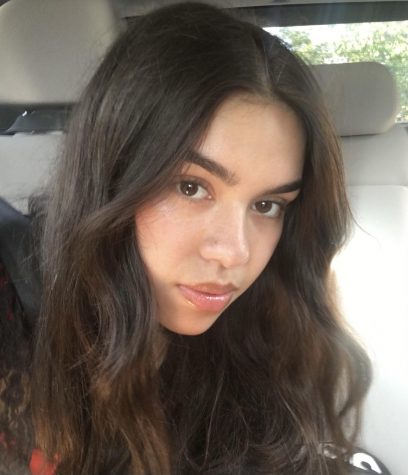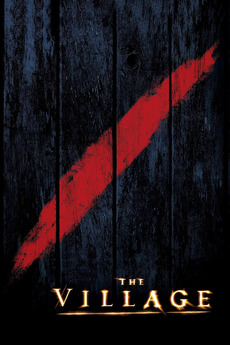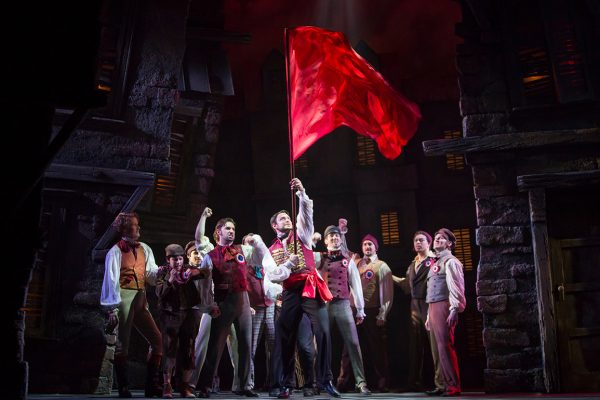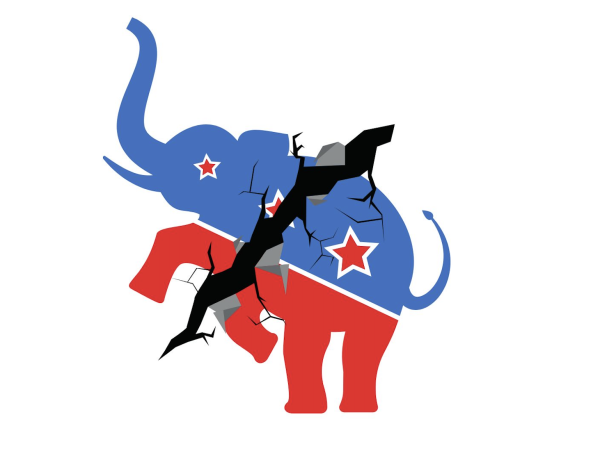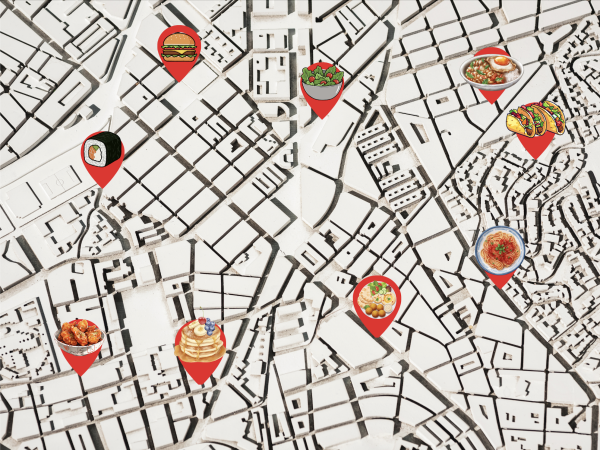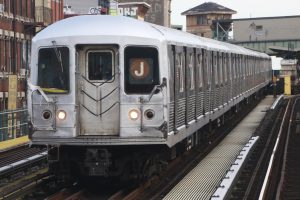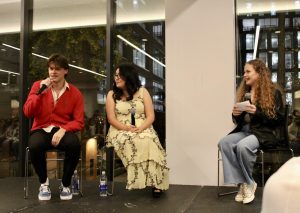Students criticize University’s response to racism allegations
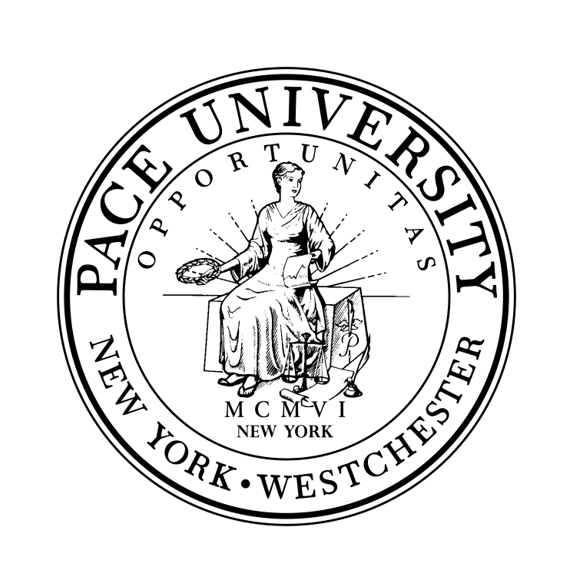
Wikipedia Commons
June 10, 2020
*This is the first article in a series of stories that The Pace Press is currently working on and will continue to work on—these stories are intended to uplift and amplify the voices of BIPOC students and share their experiences at the University and beyond. These stories also intend to hold the University accountable for their perpetuation of racism across all levels of the institution.
Following the murder of George Floyd at the hands of white officers in Minneapolis and subsequent protests across the country against racism and police violence, University President Marvin Krislov issued a statement on behalf of the administration.
The statement, posted to Twitter on May 31, failed to explicitly mention Black people or police brutality and received backlash and outrage from the community. It was quickly followed by a second statement sent out by email, which still lacked information on how the University would take direct action to effectively eradicate racism and anti-Blackness on campus. Students then took to social media to criticize the administration both for their ineffective response to current events and their neglect of the accusations of racism from staff members, faculty and other members of the student body.
University senior Jizelle Gutierrez said, “I think Pace’s response is the bare minimum of what students are asking for. We want the school to take action and protect students of color. Marketing diversity on campus but not giving students the safe and educational environment that we need is absolutely not worth the tuition.”
“I do believe that Pace is trying to make an effort, but I doubt it will be enough. Pace also never explicitly mentioned Black Lives Matter which is something many students need to hear directly from them,” she continued.
Many students called on the University to not only use words to show solidarity with their Black students and the Black Lives Matter movement, but to also donate to organizations that support the movement and use its power as an institution to acknowledge systemic racism and work to actively counteract white supremacy on campus and beyond.
University sophomore Nicki Kissil said, “The University plays a bigger role than it pretends to in the NYC community. Pace could and should use that power to begin fighting racism within the city by cutting ties with the NYPD, an organization which has shown its inherent racism and violent tendencies time and time again.”
“I believe Pace brought in the NYPD commissioner to recruit kids straight out of school. That is irresponsible as there are students that feel unsafe and targeted by police,” Kissil continued. “They’ve shown little initiative on this topic other than ‘We’re terribly sorry, we have so much white guilt’ but they don’t actually get down to addressing that the problem is within all of us. The administration must take accountability and make changes.”
University sophomore Lyric Elycia said, “I feel that for years Pace University has been complacent when it comes to handling the issue of racism within our community. They have been able to get away with doing the bare minimum, if anything at all, and it’s unacceptable.”
A University senior who wishes to remain anonymous said, “The University’s statement and response has been very lackluster. As a white person, I recognize that I possess white privilege and that my voice should be helping amplify the need for this change. I am embarrassed by the lack of response from Pace. I have read statements from my friend’s colleges and I think the idea of Marvin Krislov sending out a cookie-cutter form preset from his computer is not enough.”
“I feel that the University’s response was one they gave because they had to, not because they actually had any feeling towards what was going on,” said a University sophomore who also wishes to remain anonymous.
The following day, the NYC campus’ Black Student Union posted a statement to their Instagram in which they outlined demands they have for the University, including enforcing mandatory anti-racism training and critical race theory courses, hiring more Black and Latinx staff members and investigating claims of racism on campus.
“We need classes on implicit bias and internalized racism. The diversity talk we had in my UNV 101 class was a 40-minute joke,” said Kissil. “Why not replace hyperspecific classes that a majority of students don’t need for their chosen field—like computing 101 and a science lab—with a mandatory implicit bias course?”
Since the University released its statements, Black students, students of color and allies have come forward en masse to expose the racism and microaggressive behavior exhibited on campus by the administration, faculty and students and to denounce the lack of efficient action taken to correct it.
The University’s meme account, @pace.memes.nyc on Instagram, has been using their platform to highlight BIPOC students’ experiences with racism and microaggressions on campus. Pace Memes, which has a following of over 3,500, has been posting anonymous direct messages from students on the account’s story and tagging both the University and Krislov’s personal account.
University juniors and creators of Pace Memes Alex Smith and Elyse Sorenson said, “Use memes to bully Pace into speaking about racism.”
Following the efflux of criticism from the University community on social media, Krislov issued a third statement on June 5 with Provost Vanya Quiñones and Chief Diversity Officer Tiffany Hamilton.
The statement acknowledged that Floyd’s death was not an isolated case of racism and police brutality—they included Ahmaud Arbery who was shot and killed while out jogging, Breonna Taylor, a 26-year-old EMT who was shot and killed by police in her own home while she was sleeping and Tony McDade, a Black transgender man who was also murdered at the hands of police officers.
They also mentioned Danroy “DJ” Henry Jr., a University student and football player on the Pleasantville campus who was killed by a police officer in 2010. Many students had never heard of Henry before, especially on the NYC campus.
“I recently heard about DJ Henry’s death, and it’s devastating. I can’t believe a university that profits so much off of having a diverse environment failed to ensure that DJ Henry’s murder was acknowledged by the entire community. The least Pace could do is donate to the DJ Henry Dream Fund instead of creating a task force of random faculty and students who might not do anything productive,” said Gutierrez.
The DJ Henry Dream Fund that Gutierrez is referring to was founded in June 2011 and is a non-profit organization dedicated to the memory of Henry. The mission statement reads: “The mission of the DJ Henry Dream Fund is to share DJ’s love of sports by providing scholarships to enable children to say yes to healthy and involved lifestyles by participating in community-based athletics, wellness, arts and summer camps. Our support is not just a scholarship. It is designed to empower young people to be the best that they can be in spite of their circumstance.”
“This is what bothers me—I just heard about DJ Henry. When I had read up on his story, I assumed it had just happened. On one hand, it speaks to the differences in the New York City and Pleasantville campuses, but at the same time it speaks to the fact that the University does not do enough to raise awareness or speak out about issues regarding race,” said the anonymous senior.
University alumna Lindita Kulla started a petition on change.org that seeks to designate a “DJ Day” on Oct. 21 for students, faculty and staff on campus. The petition also calls for more programming from the University that discusses ways to be allies to the Black community and “actively educate and fight against racism and bigotry.”
“I only heard about DJ Henry for the first time this week in the wake of George Floyd’s murder. When Pace is home to a large population of Black and other POC students, it has a responsibility to make them feel safe. To not only pretend like DJ’s murder never happened but then to continue being involved with the institution that murdered one of its students is at best irresponsible and at worst sinister,” said Kissil.
Additionally, students and alumni created the DJ Henry Protest Relief Site which will remain active for at least the rest of this week. The relief station, located at Printing House Square (corner of Spruce St. and Park Row) will provide water, snacks, gloves and masks, first aid supplies and tear gas relief for protestors. The team of volunteers will also be educating protestors on Henry’s life and legacy.
View this post on Instagram
We’ll be here all week. DM if youre interested in volunteering. Please spread the word!
Krislov’s latest statement also further outlines actions he says he and other members of the administration are committed to implementing. Those actions include the formation of a Presidential Task Force composed of students, staff, faculty and alumni that will be funded by the President’s Office; the launch of a reporting site where members of the University community can note incidents or experiences “contradictory to the inclusive environment” the University seeks to sustain; and the intention to design a comprehensive series of programming for the fall 2020 semester that claims to examine racial justice and honor the memory of Henry, as Oct. 17 marks ten years since his murder.
“I have never heard of any task forces on campus before. I’m curious to see how they are going to pick the students and faculty to be on the Presidential Task Force since it is clear that faculty has not been held accountable for their actions. However, after reading multiple students’ stories on Pace ignoring their reports, I do not believe that a Presidential Task Force will do anything beneficial,” Gutierrez said.
“The only task force I have heard of at the University is the one that was established for COVID-19. I haven’t heard of anything they have done so far, and I don’t think I’m the only one who doubts they even exist,” said the anonymous senior.
Elycia, who helped form the Black Lives Matter Task Force said, “Thanks to the large number of students speaking out and holding the University accountable on social media, the position of diversity ambassadors was created. As diversity ambassadors, we created the task force to make sure that through this entire process the voices of our Black/African American students are heard first before anyone else’s. Together we are dedicated to finding solutions and creating legislation to fix the issues Pace has spent so much time ignoring. Although I can’t speak for the past, what I can say is that I am completely dedicated to finding solutions and working my ass off to make sure they’re implemented in an effective way that creates real change.”
“I can’t speak to what the Presidential Task Force is, though. It was created after ours and we were unaware of it until we read the email sent out the student body,” she continued.
The same day the updated statement was released by the University, the Student Government Association on the NYC campus held a diversity town hall on Zoom with CDO Hamilton. The open session was intended for students to share their experiences and suggestions on how the University can properly support and uplift Black students and students of color.
“Being a freshman this past year, there were a lot of things I was unaware of so hosting a town hall was really important to me because I wanted to understand. Despite being Black, I can’t speak on behalf of everyone’s experiences. I felt it was really important to hear first-hand what others have been through. I also wanted as many opinions as possible on what actions Pace can take to fix the problems at hand,” said Elycia.
Kissil commented, “In the town hall’s chat room, we talked about how Chartwells, who caters to the University, is deeply and systemically racist. Majority BIPOC are working long hours for minimal pay and they’re always talking about how exhausted they are and how little they get paid for the work they do. Chartwells also services prisons, meaning it profits off of the prison industrial complex which heavily targets Black and brown people. It’s modern-day slavery.”
“I feel the town hall was effective because it got out everyone’s emotions and feelings, but do I feel like Pace will listen and change anything? Not at all,” said the anonymous sophomore. “Pace needs its Black students and students of color, but won’t work towards making the University a better place for them.”
The University has not released any more information thus far regarding the task force or implementation of programming for next semester. However, they ended their updated statement with a plan to hold a community forum where members of the University community are invited to “share their experiences and visions for how Pace can make a difference.”

